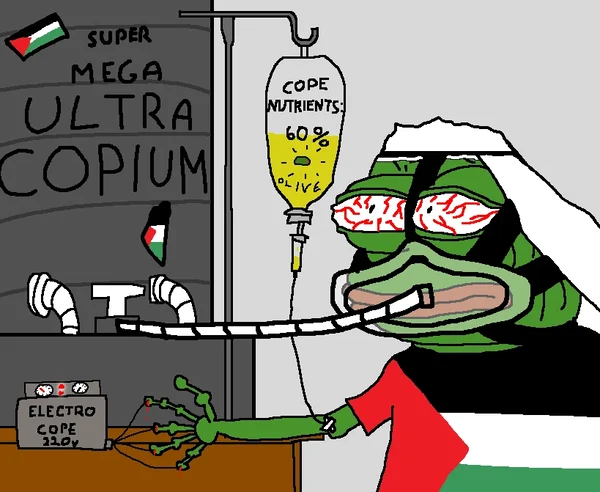I was wrong... about a lot of things and remarkably accurate about others. I planned to do a lessons learned thing after the war if it ended soon, but that isn't going to happen and I'm afraid with the election I'll forget about all this. Also a very large number of folks with special needs have become very interested in me and are telling me I said certain things that I actually didn't, so I ought to refresh their memory. Also I apparently lack humility. I never admit that I'm wrong and I think I know everything. I guess that's true if you ignore all the times I've admitted I was wrong and all the times I've not written about something because I don't know about it.
Pre-War
On Oct 7, this is what I expected if full-scale war broke out between Israel and Hezbollah:
IDF will be completely unopposed in the air and use that to inflict heavy casualties, a few thousand at least. IDF will make devastating attacks on civilian infrastructure too.
Hezbollah will respond with saturation attacks, firing so many rockets at once that Iron Dome can't handle all of them. These will cause significant damage to the economy.
Hezbollah will also keep a lot of its rockets to use in daily harassing attacks.
IDF will invade on the ground, advance very slowly (like in Gaza), and eventually run out of steam. They'll get farther than in 2006 but not all the way to the Litani.
IDF will suffer from poor intelligence compared to Hezbollah, especially human intelligence.
The war will last a long time. Much longer than in 2006. Months at least or maybe years.
Reality
So, how did I do?
IDF will be completely unopposed in the air and use that to inflict heavy casualties, a few thousand at least.
First part is a no-brainer.

Second part I'm getting right so far. Both sides agree that it's somewhere above 2,000 dead. If anything, I'm a bit surprised that after 3+ months of really intense bombing it's not higher.
Third part is true, but I wasn't completely right. There's targets that I assumed would be hit right away (airport, bridges) that haven't been and I never anticipated that Israel would go after individual bank outlets. Also they've destroyed some housing in south Beirut but I expected they would have done more by now.
Hezbollah will respond with saturation attacks, firing so many rockets at once that Iron Dome can't handle all of them. These will cause significant damage to the economy.
First part I was 100% wrong about. They don't seem to have tried to shoot more than 100 in a day, where I expected they would shoot 100 at once. I'm not sure what their logic was here. They need to hoard a lot of them to keep firing into the future, but I don't see why they didn't try it out at least once. Maybe it's the gradual way the war developed, where by the time Hezbollah was ready for that kind of escalation it was too disorganized.

Second part I was wrong about. There has been a disruption to the economy from the citizens of the north being forced to evacuate, but I expected that the rockets would actually hit something and life in Haifa would be disrupted.
Hezbollah will also keep a lot of its rockets to use in daily harassing attacks.
100% correct. They've kept firing daily for months and there's no sign of them letting up.
IDF will invade on the ground, advance very slowly (like in Gaza), and eventually run out of steam. They'll get farther than in 2006 but not all the way to the Litani.
Wrong, but not in a way you r-slurred chuds can gloat over. They didn't lose the ground war because there wasn't a ground war. The IDF crossed over in some sectors and blew up villages along the border. That's it. They've had about 30 killed to gain 3 kilometers in 3 months a month [thx @Mr_Hershey_Nesquik for catching this], so it's safe to assume that if there had been a real invasion it would have stalled quickly.
IDF will suffer from poor intelligence compared to Hezbollah, especially human intelligence.
What really happened wasn't even the opposite of this, it was the opposite of this x10. Somehow since 2006 the Israelis have developed an incredible ability to track down the locations of Hezbollah leaders. Not just the top level leaders in Beirut but also the military commanders at the front. It's to be expected that they have really good signals intelligence and access to American satellites, but they must have also infiltrated the organization in multiple different places. The beepers thing proves it. To be fair to me, nothing like this has ever happened in any war ever so it wasn't easy to predict.
The war will last a long time. Much longer than in 2006. Months at least or maybe years.
Again, this is a no-brainer. Nobody (except for some tarded chuds in here) expected that they were going to blitzkrieg to Beirut in a few days.
Assumptions
Let's look at some of the assumptions I made (I believe mottecels call these "priors") that led me astray:
Israeli intelligence will be worse or on par with Hezbollah's. In the decades they had spent fighting Hezbollah they had failed to infiltrate or track down their leaders. Also Oct 7 proves that they're not supermen. I think I can be excused for this since nobody else in the world predicted it.
Hezbollah has 150,000 rockets. After the 2006 war you started seeing articles about how Hezbollah was building up its rocket arsenal. There would be "estimates" over the years that they now have 10,000, 30,000, 50,000. For a while it plateaued at 100,000. Then in recent years it was bumped up to 150,000. I've always been skeptical of these numbers since there was never an explanation of how someone could know that. It was probably coming from counting how many boxes were being unloaded from planes, which is far from an exact science. So I suspected the number was exaggerated. Apparently it's not even in the ballpark. Since Oct 7 they've fired about 8,000. If they had 150,000 rockets they could keep up the current rate of fire every day for 9 years. They're not that patient. All the experts believed in the 150,000 number so if anything I deserve some credit for actually doubting it.
We can apply what we know from the 2006 war to this war. This assumption is kind of mandatory because there's nowhere else to start from. For both Israel and Hezbollah that was the last time they were in this kind of war, so we don't have much else to go on. I actually did a pretty good job of extrapolating from that in some areas, like knowing that the IDF wouldn't make substantial gains on the ground. But their amazing feat of intelligence work completely shocked me.
Conclusion: All in all, I think I did fairly well. There were some big surprises but they were big surprises for everyone else too.

If you actually bothered to read this and want to point out some more mistakes I've made, please do so. Here's some tips:

Talk to me, not your straw man of me.
Don't accuse me of loving Hezbollah just because I don't personally identify with either side.
Read carefully. Make sure you're not accusing me of saying the exact opposite of what I'm saying. That's happened a lot lately.
If you feel that a relatively impartial observer talking about a war far away is the most offensive thing on this site, do some self-crit.







.webp?h=8)

Jump in the discussion.
No email address required.
Can the moderators remove this post? This data is being used to attack Palestine and Palestine supporters.
Jump in the discussion.
No email address required.
More options
Context